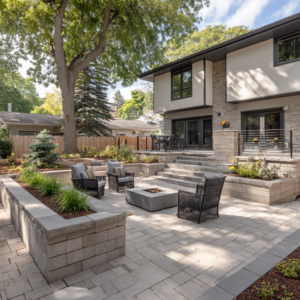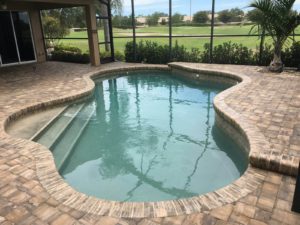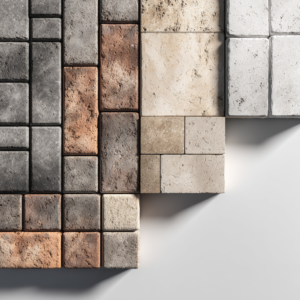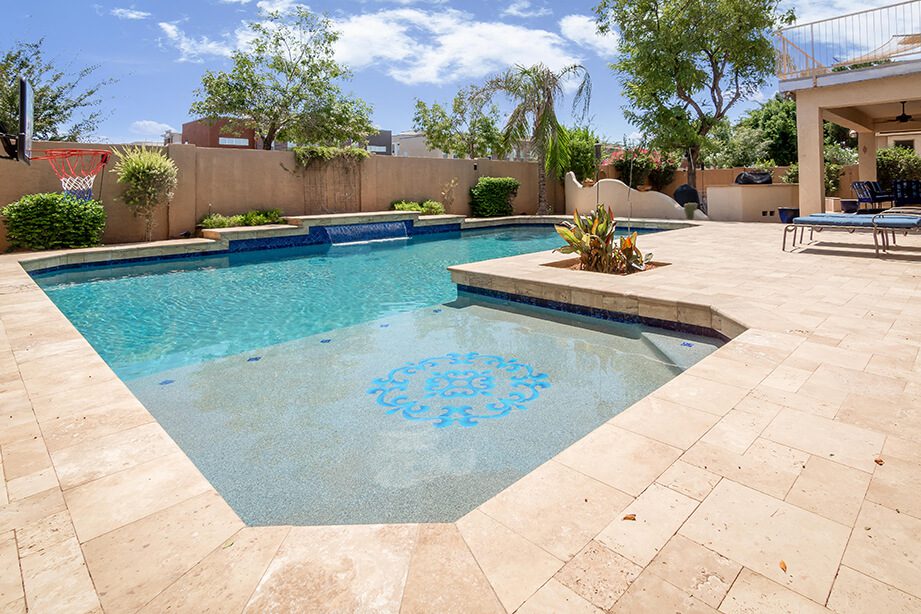
If you’re considering adding a pool to your backyard and are researching for pavers, you probably know at this point that travertine is one of your best options. But what makes it so? Is travertine cheap? Is it easy to clean and maintain? Does travertine get hot?
Any homeowner who has ever worked on a pool project knows how good travertine pavers are. Still, many questions might appear for those who have never worked with it. For most, travertine remains the number one choice for poolside and hot tub installations.
The goal of this article is to explain why travertine works so well in these scenarios and what you need to know before deciding to go for it on your project. So let’s get right to it.
Jump to:
Does Travertine Get Hot? What Other Advantages Does it Have?
As with any other material, travertine comes with its sets of pros and cons. For now, let’s focus on the pros.
A big part of what makes it a top-choice for poolside installations is that it doesn’t get hot under heavy sun. In fact, travertine is extremely heat-resistant, being able to withstand temperatures as high as 85 degrees.
Also, since there’s going to be much water splashing around, it wouldn’t be such a good idea if travertine were slippery, would it? Here is the second biggest advantage of travertine pavers: they are completely non-slippery.
You see, travertine is a porous material that works especially well with water. It has holes that can easily absorb water and prevent the formation of puddles and water runoff.
Travertine is also extremely durable. You can safely move furniture around without being afraid of scratching its surface.
By now, it is important to make a distinction between the two forms in which you can find travertine on the market: travertine tiles and travertine pavers.
Tiles are what we call the thinner modular blocks that are made for interior use. Travertine tiles are also a wonderful option for regular in-house flooring.
Pavers are much thicker solid blocks of a certain material, like travertine and other natural stones or concrete. These are much more resistant and are the recommended choice for outside applications.
Travertine and Sealing: A Complex Subject
In case you didn’t know, sealing is an integral part of working with pavers.
Most pavers are porous, like travertine, and need to be protected against spills, rain, and other weather effects. This protection comes in the form of sealers.
Sealers are products that are spread on top of pavers and tiles to protect their surface and, in essence, fill their pores. Sealers can be topic or penetrating.
Topic sealers act only on the surface, creating a hard coat of protection on top of them. They can have different finishes to slightly alter the look and texture of the pavers.
Penetrating sealers, on the other hand, go inside their pores and fill them up. This virtually eliminates the holes in a material and turns them impervious.
“But wait a minute…” You might be asking yourself. “Isn’t the porosity of travertine exactly what makes it such a good option for poolside installations? If I seal it, wouldn’t I be destroying exactly what makes it good?”
That is a very valid question with a very complex answer. The truth is, each case is unique.
Yes, by sealing travertine you’re virtually turning it non-porous – when its porosity is precisely what makes it good. Unfortunately, this paradoxical aspect means you will have to, eventually, make a choice.
Let’s discuss that choice in the next topic.
Travertine Pavers: To Seal or Not to Seal?
When installing travertine pavers, you’ll have to pay very close attention to the particularities of your setting. The big choice will be between sealing and not sealing your installation.
To help you reach the best possible decision, the help of a qualified hardscape contractor is pivotal. Every installation is unique, with its own set of challenges.
Depending on the aspects of your installation, sealing it might be the best choice. But it can’t be any sealer. Most times you’ll want to go with topic sealers to prevent the porosity of the travertine as best as possible.
Other times, sealing won’t be worth it, especially if you live in regions where temperatures don’t get as low.
Make no mistake about it – this is a complex choice that should be left in the hands of professionals.
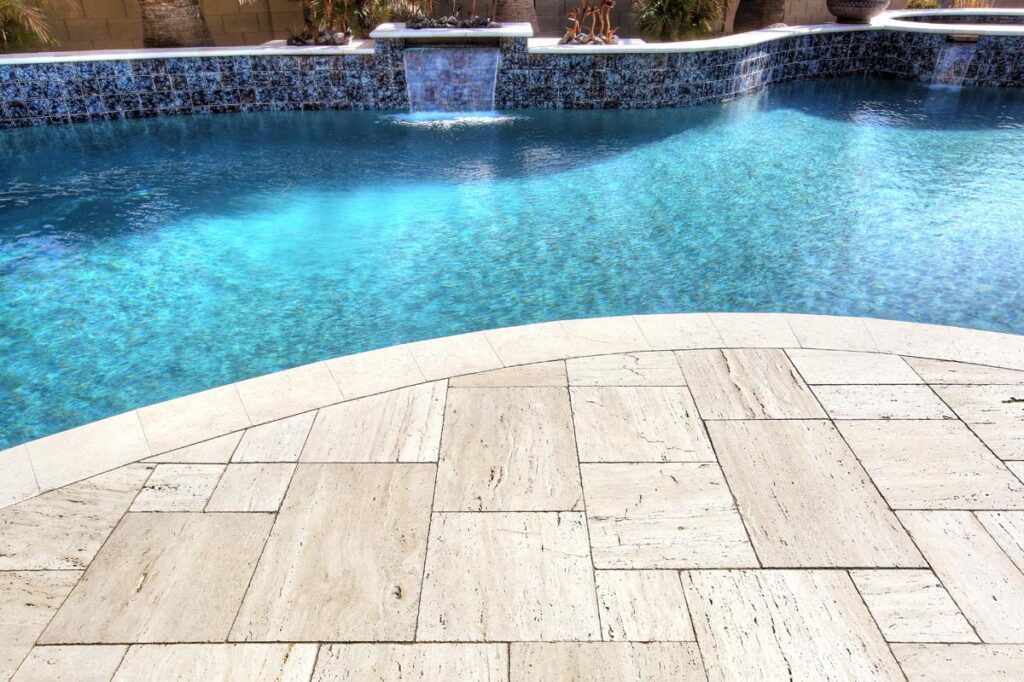
Travertine Cost and Installation
So, to summarize, travertine pavers have tremendous advantages when used in a poolside installation. Some of these advantages include the fact that travertine doesn’t get hot and has a natural water absorption.
For all its benefits, travertine pavers come with a great cost benefit, especially when compared to other natural stone options, costing only $4 to $11 per square foot.
The choice to seal a travertine installation or not, as we said, is best left in the hands of professionals.
We here at JS Brick have worked on more travertine installations than we can count over our 22 years of experience. We know how complex things might get, so it’s preferable to work closely with a professional in your area for the success of your installation.
And if you happen to be around our area of activity, the Sarasota and Manatee Counties in FL, why not give us a call to help you out? You can contact us anytime at +1 941 586 9140 or email us at [email protected]. We would be more than glad to hear from you!

